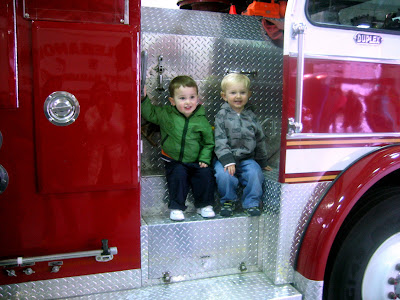Hi everyone! Luca is an absolute ANGEL baby so far. Since day one he's been sleeping at 4 to 4.5 hour clips at night, breastfeeding like a pro, and has cried maybe five times since being home and no longer than 30 seconds each cry. I do not exaggerate here. I seriously have never seen such a content baby. In fact, he is so content I was a little concerned about his lack of crying but the doctor says he's perfectly healthy. We've caught him lying awake in his bassinet just looking around, cooing, wiggling, and smiling (sure it's just gas but it's still nice to see). Sometimes he will give a little fuss at the end of a diaper change or at the end of his bath, but it is by no means a cry and it is the sweetest little fuss - more like a grunt. I have no idea where this child came from but we are just waiting for it all to change. And it very well could - we'll see. Jason's Mom says he was like that as a baby so maybe he got it from Dad.
Vin on the other hand has been quite a handful. Last week was rough with him throwing tantrums and not wanting anyone but Daddy. In fact, until yesterday he didn't want much to do with me or the baby. It didn't help matters much that he got sick and then had asthma issues AGAIN shortly after the baby was born. He is doing a bit better now so I think we'll be okay when Ja goes back to work tomorrow.
I think my recovery is going well. It's still painful to move around but that's normal for a c-section. Hopefully, by the end of the week I'll be more mobile. I really miss being able to rough house and run around with Vin. :(
Mom has been such a huge help and we are so thankful for her. In fact, she's downstairs right now making my favorite recipe of her's: bean soup. Smells so good!
















